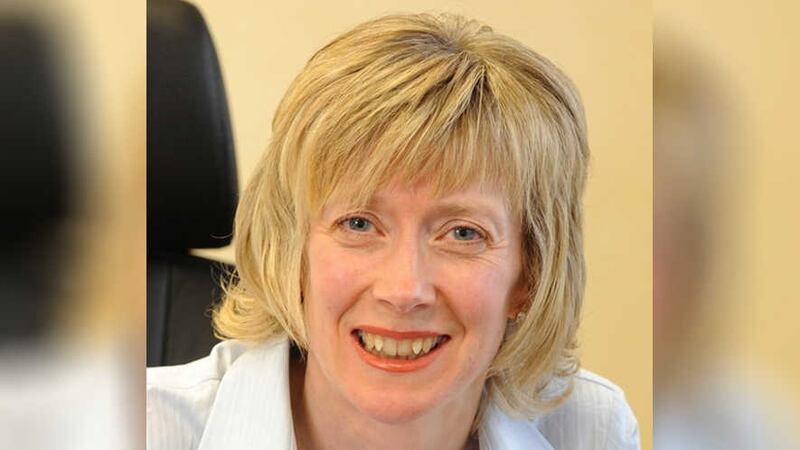There’s no doubt Pat Cullen is a huge catch for Sinn Féin. An articulate, powerful and experienced woman with an already significant media profile in Northern Ireland and Britain, when it comes to the credentials for a potential poll-topping candidate, she ticks every box.
Although from outside Fermanagh-South Tyrone, she hails from Carrickmore, just a matter of miles from the line that divides the constituency from neighbouring Mid-Ulster and can therefore easily brush-off suggestions that she’s being parachuted in.
In terms of her political outlook, the pay and conditions of the workers she represented as general secretary of the Royal College of Nursing have been Ms Cullen’s priority in recent years, however, occasionally we’ve had glimpses of her nationalist sympathies.

Last year, she was reported to have told an audience at Féile an Phobail that a united Ireland was the only way to save the NHS, while in 2019 Ms Cullen was among 1,000 signatories to a letter to the then taoiseach Leo Varadkar, urging him to defend the rights of Irish citizens north of the border amid uncertainty caused by Brexit and the political crisis that had unfolded at Stormont in the wake of Sinn Féin’s decision to collapse the institutions two years previous.
With recent boundary changes thought to favour a nationalist/republican candidate, Sinn Féin was favourite to retain Fermanagh-South Tyrone regardless of who ran. Party stalwart Michelle Gildernew has held the seat since 2001, for all but two years. Former UUP leader Tom Elliott topped the poll as the sole unionist candidate in 2017, beating the incumbent by 530 votes, only to relinquish the seat two years later.
Ms Gildernew, who in next week’s European Parliament poll stands only an outside chance of becoming an MEP for the Midlands and North West, announced last week that she would not be defending her Westminster seat, a decision we can assume she took unilaterally.
It remains to be seen what party role the former Stormont agriculture minister will take, if her bid for the European Parliament is unsuccessful.
Meanwhile, unionism’s three main parties have been at odds over how best to wrestle the seat from Sinn Féin. Ms Cullen’s selection, understood to be a formality, will only deepen unionism’s woes.
UUP leader Doug Beattie, who with some justification believes his party’s candidate, Diana Armstrong, is best placed to challenge Sinn Féin. He and his DUP counterpart Gavin Robinson have engaged in a public spat about candidate selection and the ability of an agreed candidate to unite unionism.
Only some hasty horse trading, coupled with a course of humble pie, will deliver a candidate that on paper at least, unionists can get behind.
Come July 5, however, it looks increasingly likely Pat Cullen will follow in the footsteps of Bobby Sands, Harry West and James Hamilton, the 5th Duke of Abercorn, by being elected to serve as MP for Fermanagh-South Tyrone.
Yet given Sinn Féin’s abstentionist policy, it could well be regarded as a waste of a major talent.









